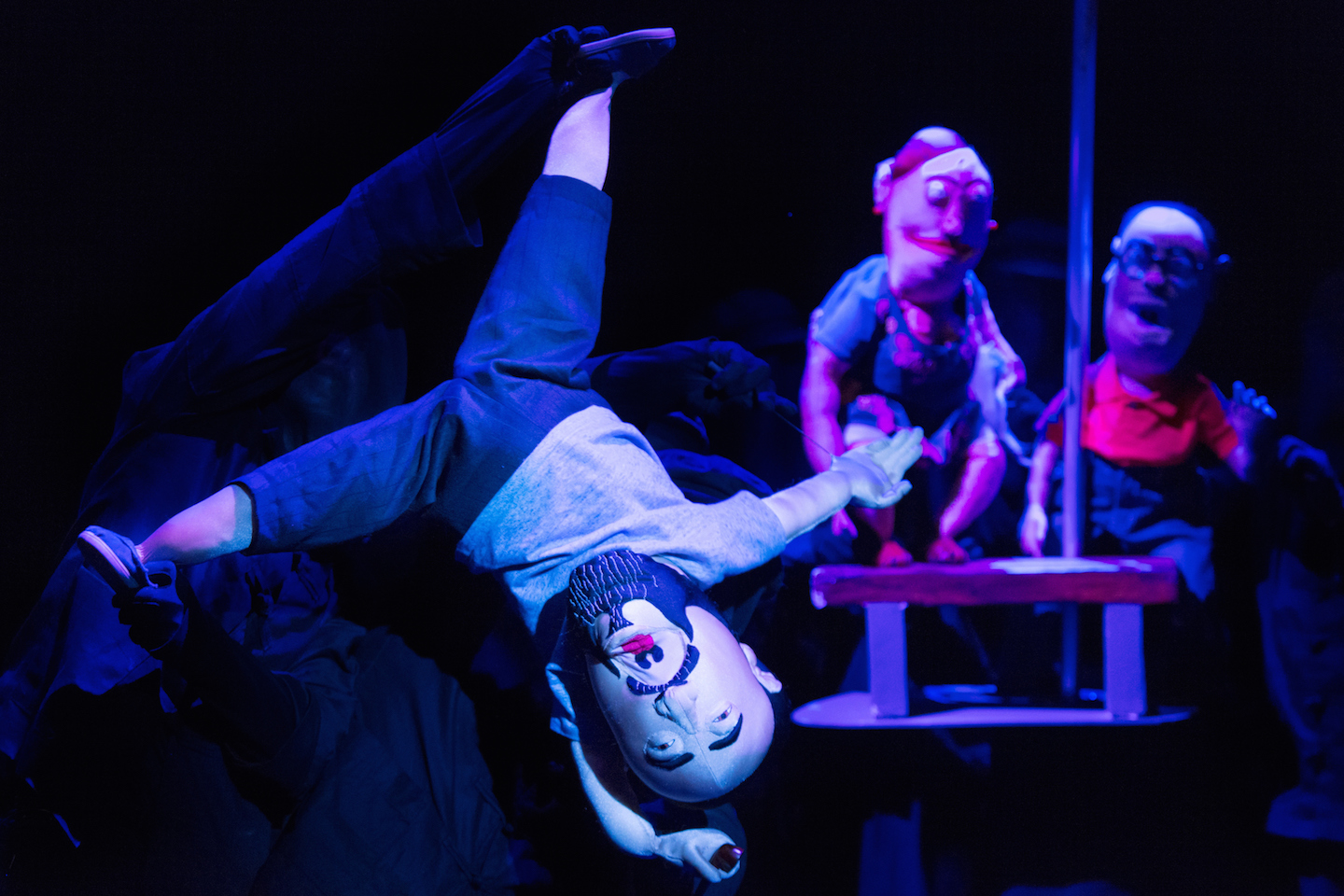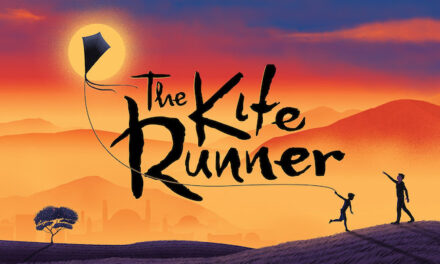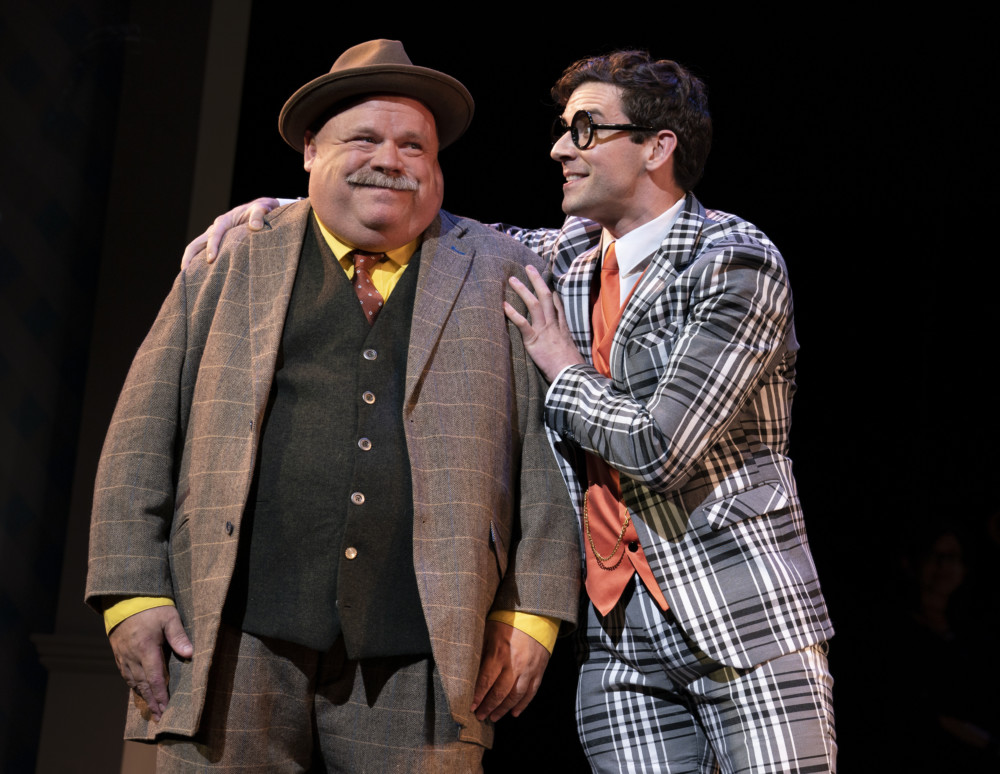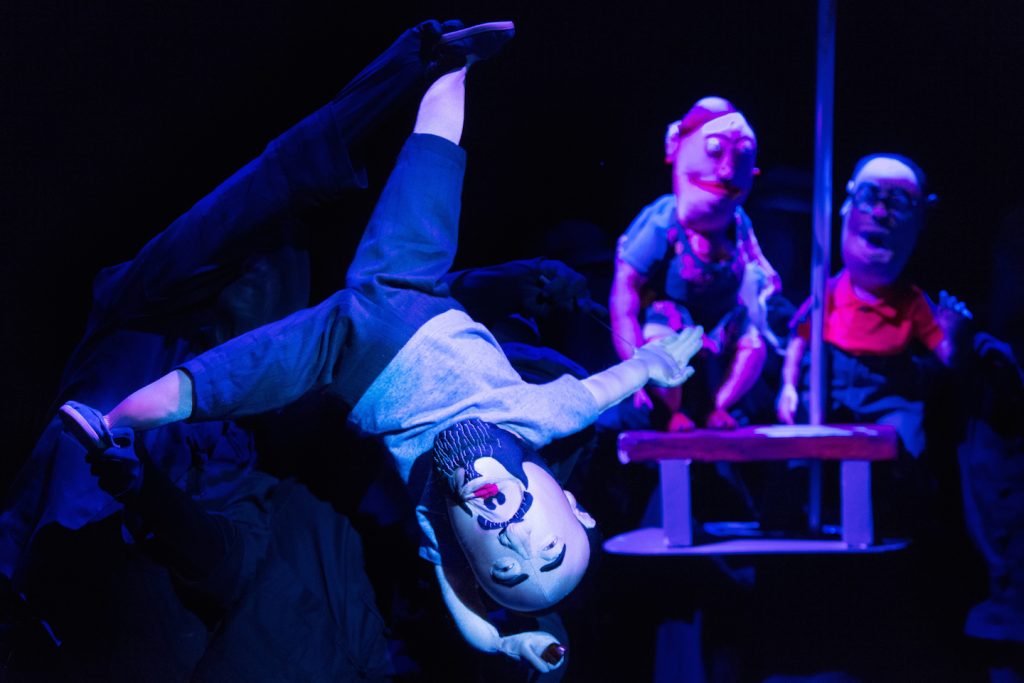

Editor’s Note: Theater Pizzazz has the rare privilege of offering separate reviews of Made in China by two of our esteemed critics. The following is Samuel L. Leiter’s review. After enjoying this one, we invite you to read Joel Benjamin’s review here.
by Samuel L. Leiter
Remember the old joke about finding a message in a fortune cookie that read: “Help, I’m a prisoner in a Chinese fortune cookie factory”? Well, you may also remember that in 2014 something remarkably similar happened when a New York woman who’d bought a pair of boots at Saks Fifth Avenue found a letter in her shopping bag from a man claiming to be a prisoner in a Chinese slave-labor factory.
This story is the inspiration for the satirical puppet musical, Made in China, created by Wakka Wakka, a brilliant puppetry troupe devoted to producing seriously funny works about important socio-political issues, like their 2013 Saga, which looked at the 2008 Icelandic financial crisis.
Made in China touches on issues of American consumerism and reliance on Chinese manufacturing and labor exploitation; Chinese-American social and financial relations; China’s massive infrastructure investments and growing millionaire class; and China’s human rights infringements. The original events, however, are completely transformed by writer-directors Gwendolyn Warnock and Kirjan Waage (the latter also made the puppets) into a farcical, musical, phantasmagorical odyssey that, while hitting various political marks, remains delightfully engaging throughout its hour and 20 minutes.
After a prologue of sorts where a giant panda keeps repeating “Made in China” with a decidedly Trumpian accent, we meet Mary Harrison (Peter Russo), a dumpy, middle-aged divorcée, at home in the naked glory of her pendulous breasts and bushy pudendum, with her dachshund Lily (Dorothy James). Events bring Mary and Lily together with Mary’s equally lonely and middle-aged Chinese neighbor, Eddie Wang (Ariel Estrada) and his dog, Yo-Yo (Andy Manjuck).
Depressed, Mary goes on a Christmas shopping spree, buying a pile of unnecessary things, all of them made in China. Miraculously, in a box of Christmas decorations, she finds a letter from a Chinese labor camp prisoner complaining of torture and crying for help from the “World Human Rights Organization.”
Soon Mary and Eddie find themselves magically sucked into Mary’s toilet (lots of bathroom action on view) and on their way to find the prisoner in China, where they encounter a series of surrealistic adventures. These extol China’s incredible economic progress; introduce the cryptic advice of Wei Wei (Stephen J. Mark), apparently the dissident artist Ai Weiwei; depict Mary and Eddie’s imprisonment and Mary’s epiphany regarding her misguided behavior; and reference things like Tiananmen Square and the collusive economic relationship between China and America.
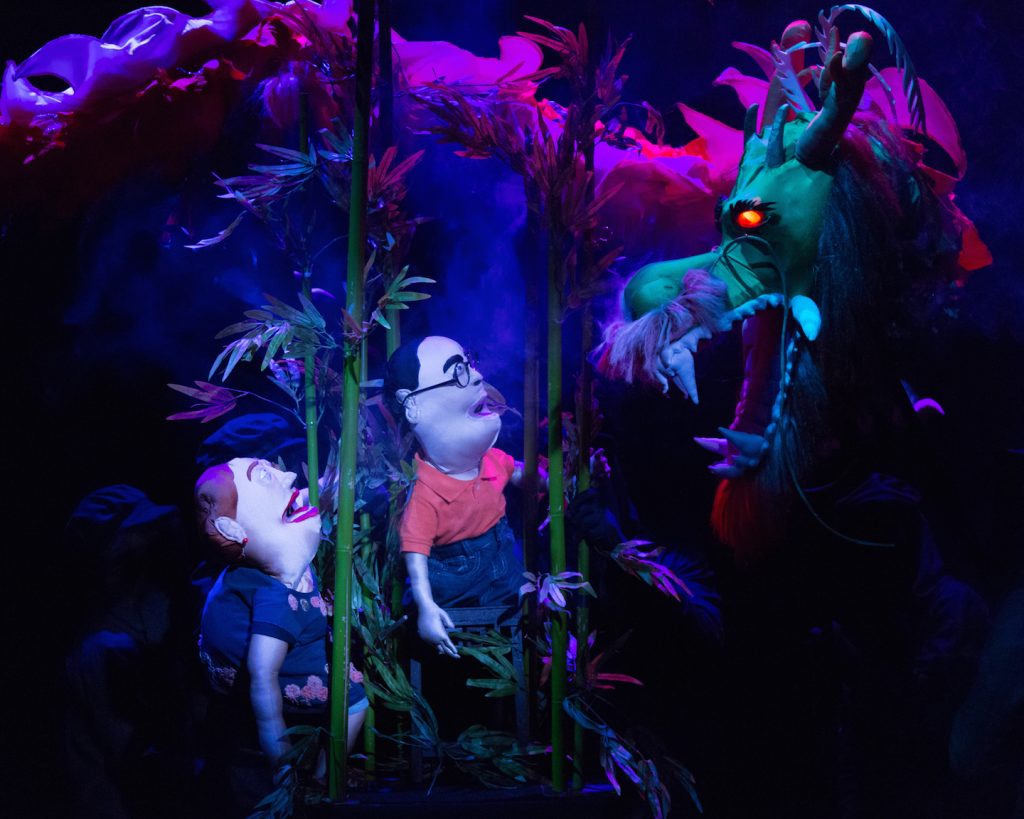

Things grow increasingly fantastical, especially when a huge, pink, Chinese dragon enters, and, with glowing eyes and smoky breath, even swoops over the first few rows. Mary and Eddie, who’ve been fighting (including an out-and-out slugfest) since they met, eventually make it back home via the same jet plumbing that took them on their journey, and find their own Chinese-American détente in a riotous, X-rated sex scene, after which the show arrives at a let’s-all-love-each-other kumbaya finale.
The puppets—which include props like a talking toilet plunger (Charles Pang)—as well as people and animals, are manipulated by actors in bunraku-like black robes and veiled headpieces who also speak and sing their characters’ words. The bouncy music—some of it with an appropriately Chinese accent—is by Yan Li, who also wrote the lyrics.
What makes so much of this even more impressive is how authentically the handlers (Russo and Estrada are terrific) act the characters they’re holding: if you think that patting yourself on the head while rotating your hand on your stomach is hard, try impersonating a character vocally and emotionally while simultaneously putting it through complex physical activity on a crowded stage filled with others doing the same thing.
Made in China sometimes allows its preoccupation with puppet artistry, special effects, video projections, and the like to muffle its satirical objectives. That, however, is a small price to pay for a work of such creative imagination and performative skill. Best of all, of course, Made in China was made in the U.S.A.
Made in China. Through February 19 at 59E59 Theaters (59 East 59th Street, between Madison and Park Avenues). www.59e59.org
Photos by Heidi Bohnenkamp


